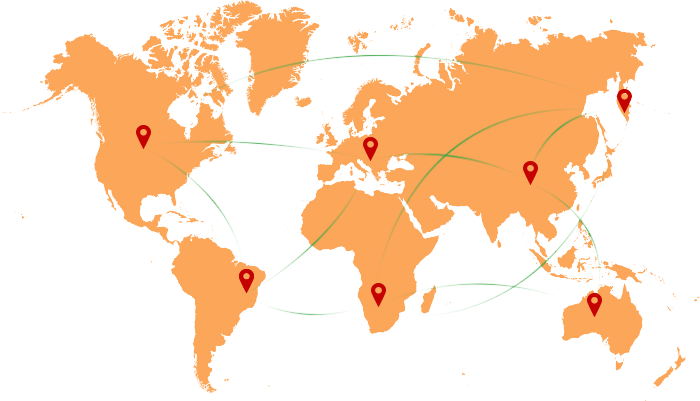About Global Learning
An open, preliminary and multifaceted concept of contemporary general education
Our mobile phone comes from China, the music we listen to comes from the USA, our football comes from Pakistan, the best friend comes from Chile, the jeans we wear were made in Turkey but the components come from different parts of the world and travelled thousands of kilometres: Global political, social, economic, cultural and ecological developments have a strong impact on our daily lives. They lead to a change of views of the world and give a rise to new ways of life. Additionally, these global developments make contacts and multifaceted experiences available, however the complexity of these kinds of relationships, to some extent, can cause uncertainty and self-defence.
Assuming that, Global Learning plays a critical role, in education it imparts knowledge, competence and values and enables orientation within changing personal living conditions. Recognizing that our living conditions are globally interconnected helps us to lead a responsible life and to participate actively.
(Austrian Strategy Group Global Learning 2009)

What is Global Learning?
"Global Education is education that opens people’s eyes and minds to the realities of the world, and awakens them to bring about a world of greater justice, equity and human rights for all."
Maastricht Global Education Declaration, 2002
- As an educational concept Global Learning claims to respond to the growing complexity and to the movement towards a global society in a pedagogically adequate way.
- Global Learning imparts knowledge about the world, informs about worldwide interrelation and encourages individuals to act responsibly in terms of a global sustainable development.
- Global Learning brings forward personal development and social learning in a global framework.
- Global Learning is a pedagogical concept, which includes issues of development policy -, sustainable development- , human rights- and peace education as well as intercultural and interreligious learning. (Austrian Strategy Group Global Learning 2009)
- Global Learning enables people to develop the knowledge, skills, values and attitudes needed for securing a just, sustainable world in which everyone has the right to fulfil his/her potential. (North-South-Centre of the Council of Europe 2008, p. 20)
Thematic dimensions

The global political, economic, social, ecological and cultural interdependences require us to see the world as a whole and to adjust teaching and learning accordingly.
The content of Global Learning is based on the concept of “One World“, while acknowledging diversity, disparities and differences. The selection and formation of content issues are derived from that. Global Learning curricula address the key issues of today, above all the economic and social disparities in the world, the structural violence against people and peoples, the ecological threats. Causes are analysed, probable consequences are explored and possibilities for intervention are considered.
In principle, almost every curriulum content in education can be understood in a global context and can thus become a priority in Global Learning. Therefore, a tight canon of topics make little sense. In Global Learning, issues are dealt with from differing perspectives and viewpoints led by differing interests are made visible.
(Austrian Strategy Group Global Learning 2009, p. 7)
Didactical dimension
From the beginning the question how to arrange educational processes has played a vital role in the development of Global Learning. Global Learning is directed at participation of the learners. The most important corner stones are:
- Educational processes should start with the living experience of learners. Educational processes must be relevant to learners’ needs and pertinent to their lives. Programmes must therefore be conceived and planned according to the interests and experiences of learners.
- The experiences of the learners should be moved into the centre of education processes. Global Learning should allow for self-reflection, and enable learners to examine their own values, opinions, prejudices and stereotypes. It should heighten learners understanding of prevailing tensions, such as heigthened uncertainities, contraditcions, lack of orientation and should foster the capabilitites necessary for learners to deal with these tensions.
- The complexity of issues requires methods, which adequately depict the topics. The interdisciplinary and transdisciplinary treatment of issues is therefore an appropriate approach in Global Learning.
- Global Learning requires a variety of methods and opens up forms of changes of perspectives for the learners. Global Learning should foster a participative, creative, dialogical, cooperative and democratic learning process.
- Global Learning seeks to link learning on a cognitive, affective and social level.
(Austrian Strategy Group Global Learning 2009, p. 7-8)
According to the Global Education Guidelines (2008 p. 31) by the North-South-Centre of the Council of Europe helpful basic criteria were formulated in order to exemplify how educational processes should be organised in the interests of Global Learning: Amongst others Global Learning methods:
- Are coherent with the content,
- Do not “teach” but educate,
- Raise awareness,
- Bring up everyone’s responsibility,
- Are based on human values,
- Develop critical thinking,
- Link local to global
- And promote human-values.
